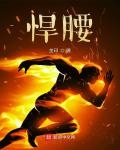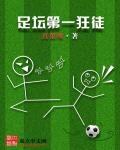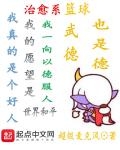Chapter 70: Difficult to Assess Opponents
"Friend Xiang Ping, in the past, after you identified your opponent, you always gave me a detailed introduction to the opponent. Why didn't you introduce him today?"
Li Xiangping smiled bitterly: "Brother Ding'an, it's not that I don't want to introduce him, but the situation of this opponent is a bit special. I am afraid that my description is not accurate and may mislead Brother Ding'an in the end."
"Oh? Why is that?"
Li Xiangping did not immediately respond to the question about his cheating because he did not say anything nonsense just now. Facing his next opponent, Kato Masao, 9th dan, he really didn't know how to describe it.
Mr. Kato, who was born in 1947, is now 53 years old. Well, if this is placed in the later generations where "people in their 20s are called veterans, and people in their 30s start playing 'Happy Go'", then there is nothing to say when meeting such an opponent. It is definitely a good fortune.
However, Li Xiangping knew that such views or ideas were not appropriate in this era, especially for an important label in the history of Japanese Go and even in the history of world Go - Japan's "Six Supers".
It is difficult for chess fans of later generations to understand why the professional lifespan of Japanese chess players of that era was so long, especially the six top-notch players in Japan, from the oldest, Otake Hideo, who won the world championship at the age of 50, to the youngest, Cho Chikun, who was still able to win domestic titles in his 60s.
There is a saying in later generations that the reason why Japanese Go players have such a long professional life is mainly because the level of Go in the past was relatively low and the competition was not fierce enough.
But to be honest, Li Xiangping does not agree with this statement at all. He thinks this statement is a bit too presumptuous. Just like the "evolution theory" and "technical accumulation" in the Go world, it has no basis at all.
We will not talk about the "level" here. After all, the level of Go in different periods cannot be compared very accurately. You may have 100 reasons to believe that the level of later generations is higher, but your opponents may be able to find 101 reasons to prove that the level of later generations is lower. Anyway, everyone's reasons are given by himself, and no one can prove that the reasons he gives are necessarily the truth.
The statement that "competition was not fierce enough in the past" is obviously untenable. In fact, the competition in the Japanese chess world has been fierce enough since the late 1970s. At that time, there were more than 90 9th dan players, and at the peak there were nearly 400 professional chess players.
As I said, regardless of the overall level, with so many chess players competing for just a few titles, isn’t the competition fierce enough?
Mr. Lin Haifeng once said that he would lose several pounds every time he played a two-day match. Please note that he was talking about every match, not every series. How could such competition not be fierce?
Therefore, to be honest, compared with "the past era", Li Xiangping believes that the competition in the chess world in later generations is not fierce enough. The reason is very simple, because the phenomenon of "premature aging" of chess players in later generations is too serious.
Because of premature aging, many talented players retreat to the second line of professionalism as soon as they have a little understanding of Go. Because of premature aging, Go, an intellectual game, has become a simple game of physical strength and energy in later generations.
Of course, a physical competition will make you sweat, and it can be considered hard to some extent, but is a physical competition necessarily more intense than an intellectual competition?
It is precisely for this reason that Li Xiangping never believed in the "theory of evolution".
He believes that the "premature aging" of chess players in later generations is not because of more intense competition. To put it bluntly, it is simply because the conditions in later generations are better. After many chess players have achieved success, they no longer need to persist in practicing chess and can live a good life without relying on winning games.
This is actually the main cause of premature aging!
From Chang Hao to Gu Dali, and even South Korea's Lee Canghao, they actually gave up first, which caused them to be unable to persist in the front line. The so-called more intense competition is just an excuse for these people to find for their premature aging.
Well, maybe Li Xiangping’s views are “non-mainstream”, but it is precisely this “non-mainstream” view that makes him really dare not underestimate his opponent in the next round, Mr. Kato.
Although among Japan's "Super Six", Mr. Kato is the only one who is not a world champion and seems to be the weakest one.
Although Mr. Kato's peak period seems to be in the distant late 1970s and early 1980s, it is now a full 20 years ago.
Although Mr. Kato is a famous , the most famous games in his career seem to be played as the background of others. For example, in the fifth game of the final of the second "Go Saint Tournament" in Japan, he was leading 3-1 but his opponent slaughtered a hundred-point dragon, which made Fujisawa the "famous game of killing a hundred points".
For example, in the 3rd China-Japan Go Challenge, he, as the main player, was defeated by Lao Nie, which established Lao Nie's historical status and even made Chinese Go a success.
Although Mr. Kato is now a director of the Japan Shogi Institute, he has put a lot of energy into promoting reforms of the Japan Shogi Institute. Even his health is not good now, because in real history, he died of cerebral hemorrhage in just four years.
However, despite so many "althoughs", Li Xiangping still dare not underestimate Mr. Kato now.
The reason is very simple, because Mr. Kato is in incredibly good competitive form now.
Li Xiangping was right. In real history, the last few years of Mr. Kato's life were indeed a small climax in his career. Although it cannot be compared with the peak period of his nine consecutive championships on the "Throne", it was also a highlight of his career.
Needless to say, Gu Dali, the "Rookie King" who just defeated China, has just won the right to challenge in the "Honinbo Tournament", the oldest tournament in Japanese history. And Li Xiangping knows that if history does not change, he will become the "Honinbo" next year, a "Honinbo" in his 50s.
Not only that, in recent years Li Changhao has dominated the world chess arena, and it can be said that he is completely in a domineering attitude. However, in last year's "Fujitsu Cup", he was completely defeated by Kato Masao in one game.
It was a real complete defeat! Because Li Xiangping was still learning chess at that time, he had a very deep impression. In that game, Kato seemed to have returned to his peak and fully restored the style of the "star of evil" in the past. In the fierce attack, old Kato made a very hidden and cold move, and defeated several chess masters of Li Canghao, forcing him to admit defeat in less than 150 moves.
"Oh, brother Ding'an, this opponent liked to attack and kill in his early years, and he was very good at calculating straight lines. When he was young, he was known as the 'executioner' and 'star of evil' in the Japanese chess world. But after entering middle age, his style of play changed and became more delicate. In a domestic chess final, he won 3 to 2, and the three games he won only won one and a half points in total, so he was also called 'official Kato' and 'half-point Kato'. Facing such an opponent, I don't know how to advise you, brother Ding'an, you can do everything yourself."
"Oh? Haha, such an opponent is interesting. Fine, I'll just do ."
After a day's rest, the "Samsung Cup" round of 16 continued at the Chinese Chess Institute.
What kind of chess game will the hundreds-year-old chess master Shi Da and Mr. Kato, who is in his 50s, create?






